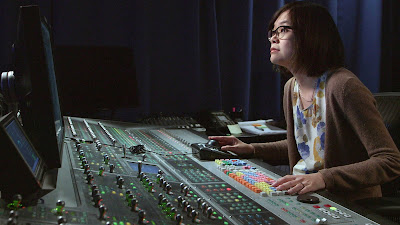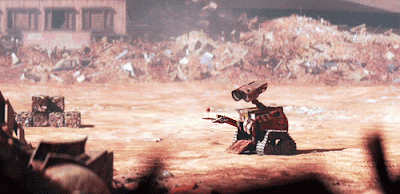This one's on me. Maybe, it's too technical, I don't care. Maybe you don't like learning "how sausage is made." I don't care if you're interested in watching it. I don't care if you'd just as soon watch something else.
Just be aware that if you watch something else, this nifty documentary covers something that you might not be aware of.
That what you're hearing in movies, commercials, TV shows, whatever...is faked.
People do this for a living. They try to make things better than reality...or, more crudely, they're "selling" you something that you have every intention to buy, whether you're conscience of it or not.
But, I think it's important that people know stuff like this. I sometimes read comments from people, or see things that people have posted, and it's apparent to me that an awful lot of people know very little about "the magic" than can happen in post-production to enhance what we're seeing...and now, we're of an age where one can't accept anything "on faith." Sounds (which this doc focuses on) and images can be produced or manipulated that you should probably not believe what you're seeing.
Ben Burtt recording the bear that made up the bulk
of the vocalizations of "Chewbacca" in Star Wars.
Why do I care? Because I used to do this for a living. In my past-life, I used to do "post-sound" for radio, television, film, and computer programs. It was something I was interested in when I was a kid, and somehow managed to do it when I grew up, taking "the kid" with me. And it was fun...it could be a lot of fun and had an inherent joy in making things "work." But, it could also be painstakingly tedious (which was readily apparent whenever I showed somebody "my work"—the attraction to the process would always "thin" for observers).
But, the thrill of the finished project always made it worth it. I especially loved when I made something out of elements so completely different from what the visuals were and people "bought it" anyway. It was a little conspiracy I played with an audience that took advantage of their natural proclivities to see an image, hear a sound with it and put two and two together in their heads. Manipulative, sure. But, nobody cared because they were "in on the act."
And I was lucky to get in on this when everything was changing, when sound wasn't part of a corporate department to be done using stock sound effects that had been in the vaults for 30 years, but became something new and creative—I remember sitting in the Crossroads theater to see THX-1138 (sound-designed by Walter Murch) and being stunned by the sounds and created environments I was hearing and wanting to do stuff like that. Then, American Graffiti. Star Wars. I was blown away attending a very early screening of Apocalypse Now (also designed by Murch, but more importantly he'd also personally set up the speaker arrays in the theater!) and having my mind blown when the helicopters in that first sequence flew right through my head. Murch and Ben Burtt and the others in their foot-steps would become as much a reason to see the film as the actors or who directed it.And Making Waves shows all of that—the technical advancements and the advancements in creativity—of what was possible, without compromise. Of how the old ways of doing things were left by the way-side because the new ways became better and took over, so that now the sound isn't just a paint-by-numbers formality, but is, in itself, its own art.
Now, all of that is behind me. I watch things and don't even notice the sound-design anymore. Oh, I do if something's "off" or if I recognize an old library sound that I used a couple decades ago (it happens more frequently than I'd like!). These days I appreciate when a film doesn't throw a sonic kitchen-sink at everything. I appreciate the silences...the judicious choices...the spareness...and the realization of what's important.













